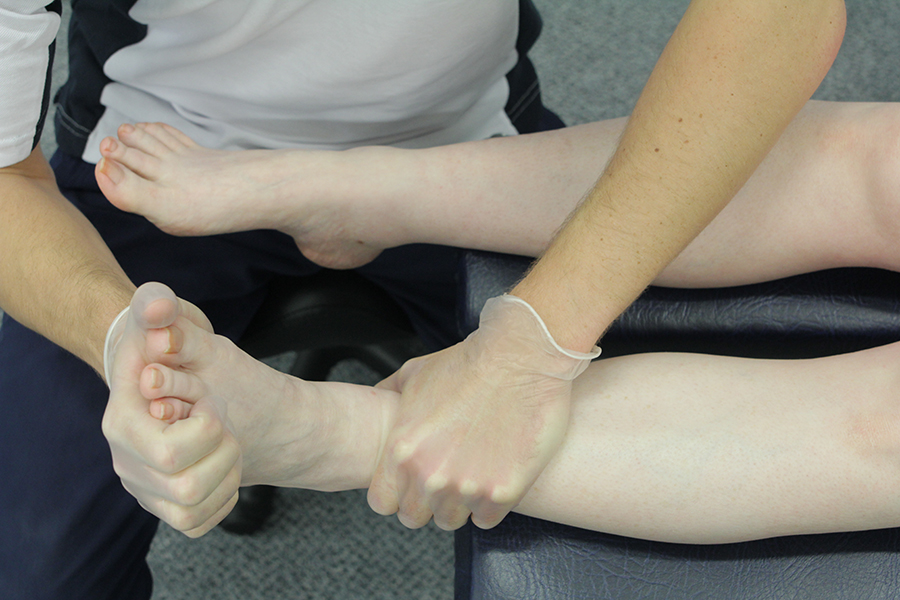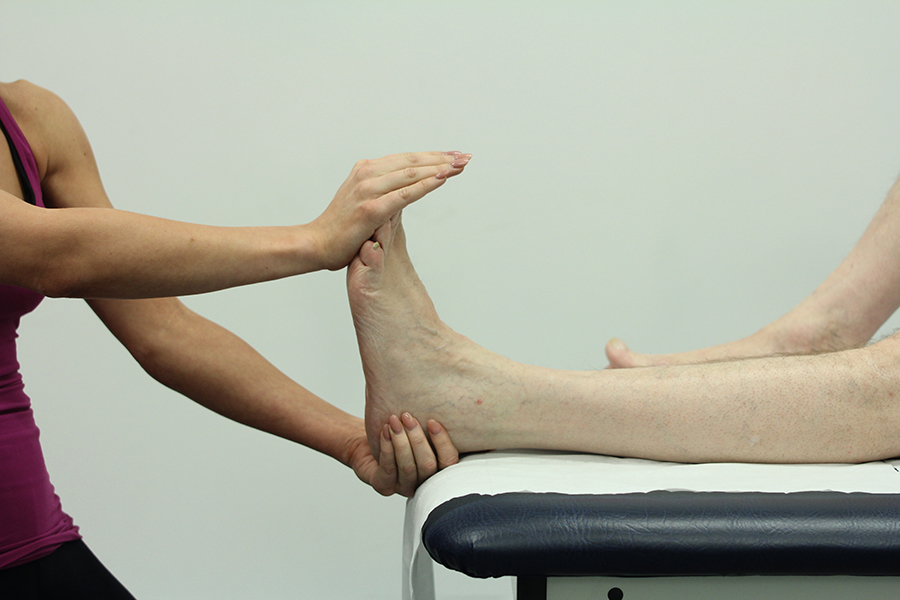Osteoarthritis of the foot
Osteoarthritis can affect any joint in the foot and ankle and can be an
extremely debilitating condition. Osteoarthritis is a painful condition
that also impacts the function of the joint affected. Osteoarthritis of the
foot can make it difficult to participate in activities of daily living.
It is not possible to stop the process of osteoarthritis; however, there
are things that can be done to improve the painful symptoms associated with
the condition. If you think you have osteoarthritis of the foot you should
visit a podiatrist who will be able to discuss the options available to
you.
What is osteoarthritis of the foot?
Osteoarthritis of the foot is a degenerative condition that affects the
joints. Degenerative means that there is gradual deterioration of the joint
over time, which in the case of osteoarthritis involves the deterioration
and breakdown of cartilage. Cartilage is a type of connective tissue that
sits between two joints and acts as cushion, allowing the joint to move
smoothly and without friction.
Years of wear and tear can cause the cartilage to wear away, and when this
happens the ends of bones rub against one another, which can then lead to
pain and stiffness.
The foot consists of 26 bones and 33 joints. Any joint can be affected by
osteoarthritis; however, the big toe joint (the first metatarsophalangeal
joint) is most commonly affected.
What causes osteoarthritis of the foot?
Osteoarthritis is commonly seen in people over the age of fifty, and typically it is caused by the general wear and tear associated with the aging process. Osteoarthritis of the foot, however, is most often seen in people who have previously injured the joint; the arthritis in this instance has, therefore, occurred secondary to the injury. Other causes may include:
- Fracture
- Sprain
- Infection in the joint
- Certain medical conditions
- Obesity

What are the signs and symptoms of osteoarthritis of the foot?
The signs and symptoms of osteoarthritis of the foot include:
- Pain and stiffness of the joint
- Bony lumps may develop around the joint
- Swelling around the joint
- Limited range of movement
- Limping
- Bunion formation
How is osteoarthritis of the foot diagnosed?
A podiatrist will be able to tell you if you have osteoarthritis of the foot. In some cases, you may need an X - ray to rule out other conditions.
Benefits of podiatry for osteoarthritis of the foot
If you have osteoarthritis of the foot will benefit from podiatric intervention. The pain associated with osteoarthritis is the result of inflammation in the joints. This inflammation is a result of wear and tear, poor biomechanics of the foot, or, a combination of the two. Podiatry can help you if you have osteoarthritis of the foot by:
- Reducing pain
- Reducing inflammation
- Increasing range of motion of the joints affected
- Improving muscle strength
- Reducing muscle tightness
- Unloading the part of the foot that is being overloaded due to poor mechanics
- Improving foot and lower limb mechanics
At Chiropody.co.uk we have a variety of treatment methods to help improve
your symptoms of osteoarthritis of the foot. For example, orthoses may be
prescribed in to improve the mechanics of the foot, and to offload painful
structures. By unloading painful joints pain and inflammation is decreased.
Further benefits can be achieved with exercises and joint mobilisation.
Exercises and mobilisation aim to improve muscle strength, reduce
tightness, and increase the range of motion of the joints affected so that
you are as mobile as you can be.
What would podiatry for osteoarthritis of the foot involve?
The podiatrist would first need to obtain a thorough medical and social history. A history is extremely important as it will give the podiatrist valuable clues to the diagnosis. The podiatrist will then examine the range and quality of movement of the joints in the foot. Once a diagnosis of osteoarthritis has been reached the following treatments may be considered:
- Anti-inflammatory advice
- Strengthening Exercises
- Stretching Programmes
- Range of motion exercises
- Joint mobilisation
- Heel raises/wedges
- Orthoses
- Steroid injection
- Advice and education
- Footwear review
- Acupuncture
- Acupressure
- Heat treatment

Summary
Osteoarthritis of the foot is characterised by the gradual deterioration of
cartilage. Cartilage is a connective tissue that acts as a cushion in
between two joins, that allows the joint to move freely and without
friction. In the foot the big toe joint is most commonly affected.
Osteoarthritis is a degenerative condition that affects the joints.
The most common cause of osteoarthritis in the foot is injury,
osteoarthritis then develops later secondary to this. Other causes include
general wear and tear and obesity.
There are a number of treatment options for osteoarthritis, however, it is
important to remember that there is no cure. Treatment for osteoarthritis
of the foot instead aims to reduce any pain and improve function.
To arrange an assessment with one our podiatrists please email office@chiropody.co.uk or call 0330 088 4222.
Save 5% by booking an appointment online.



We work with:

Individuals

Organisations

Health professionals
Get in Touch!
0330 088 4222
If you would like to speak to one of our specialists then please complete this form.
We are open 7 days a week








